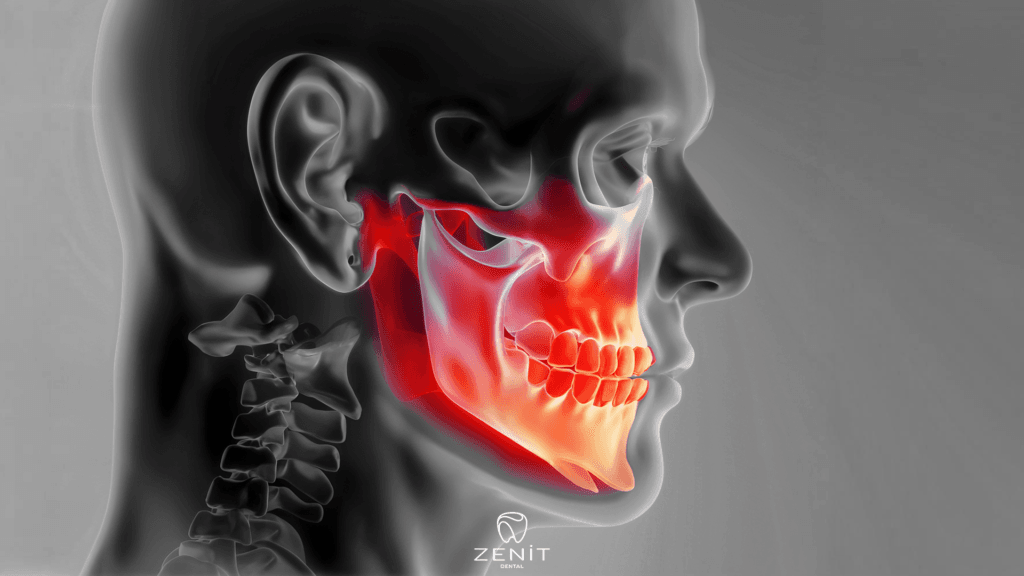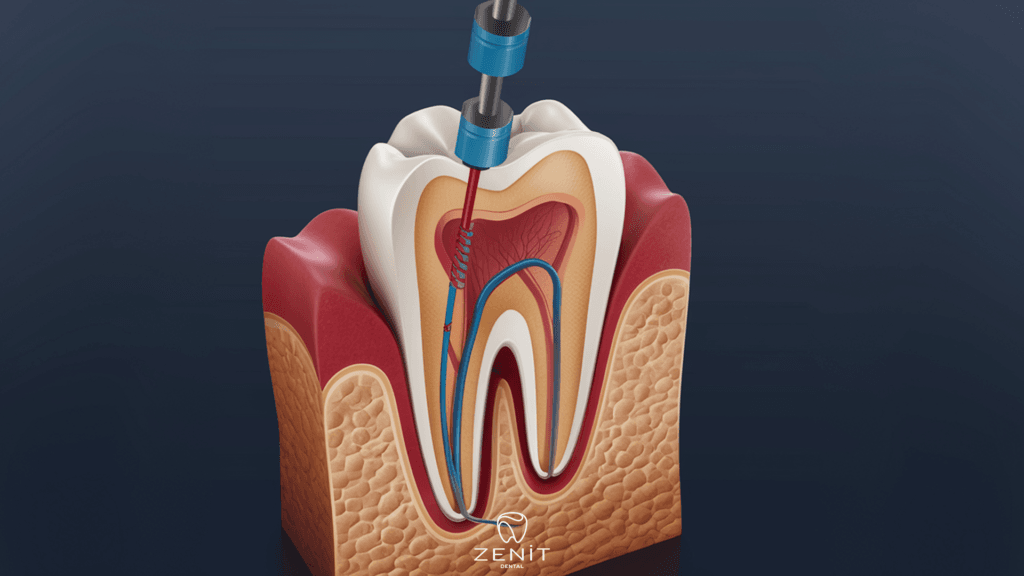What Helps a Toothache Fast
Toothache is a problem that deeply affects the quality of life and requires urgent intervention. This discomfort, which everyone encounters at least once in their life, usually appears suddenly and severely, can hinder daily activities, and even disrupt sleep patterns. Understanding the underlying causes of toothache and knowing effective treatment methods are key steps in dealing with this distressing situation.
There can be many different causes of toothache. These include cavities, gum infections, tooth traumas, teeth grinding or clenching habits, tooth impaction, or jaw joint problems. Pain occurring due to these reasons can lead to more serious health problems if not intervened in a timely and correct manner.
In this article, we will share with you the common causes of toothache and effective treatment methods. Additionally, we will discuss various topics ranging from providing temporary relief with simple methods that can be applied at home to the importance of seeking help from a dental professional. Remember, toothache should not be neglected and should be treated as soon as possible.
How to Relieve Toothache?
For those seeking soothing solutions to toothache, there are several natural remedies available. Here are some other methods that may help alleviate toothache:
- Salt Water Rinse: Rinsing your mouth with a mixture of one teaspoon of salt in a glass of warm water can reduce inflammation in the gums and alleviate pain. You can repeat this method several times a day.
- Sage Tea: Sage is a natural anti-inflammatory and can help alleviate pain. After steeping a few sage leaves in a cup of boiling water and allowing it to cool, gargle with this tea to soothe the affected area.
- Propolis: Propolis, produced by bees, has natural antibacterial and anti-inflammatory properties. Massaging the affected area with propolis extract or toothpaste containing propolis can help alleviate pain.
- Ginger: Ginger is a powerful antioxidant effective in reducing inflammation and pain. You can apply fresh ginger slices gently to the affected tooth or consume ginger tea for relief.
- Apple Cider Vinegar: You can rinse your mouth with a mixture of one tablespoon of apple cider vinegar in a glass of water. Apple cider vinegar has natural antibacterial properties and can help reduce the number of bacteria in the affected area.
- Coconut Oil Pulling: Rinsing your mouth with a few drops of coconut oil can reduce sensitivity around the affected tooth and alleviate pain.
These natural methods generally provide temporary relief for mild toothaches. However, if the pain persists or becomes severe, it is important to consult a dentist. A dental professional can identify the underlying cause of the pain and recommend appropriate treatment.

Why Does Toothache Occur?
Understanding the causes and symptoms of toothache is extremely important. Here are some common causes of toothache and their symptoms:
- Tooth Decay: Tooth decay, which begins with the accumulation of plaque and bacteria, weakens tooth enamel and leads to cavity formation. Tooth decay pain typically manifests with symptoms such as sensitivity, sensitivity to hot or cold, and gum inflammation.
- Gum Problems: Gum inflammation or other gum diseases can manifest with symptoms such as redness, swelling, bleeding, and sensitivity in the gums. Additionally, bad breath is a sign of such gum problems.
- Teeth Grinding and Clenching: Habits of teeth grinding or clenching due to stress or anxiety can lead to jaw pain, tooth wear and cracks, and even headaches and neck pain.
- Dental Trauma: Fractures or cracks in teeth resulting from sports accidents, falls, or other traumatic impacts can cause pain. Dental trauma often presents with symptoms such as severe pain, swelling, and gum bleeding.
- Teeth Impaction: Misalignment or crowding of teeth due to non-conformity with the jaw structure can cause toothache. In this case, symptoms typically include pain, pressure between teeth, and jaw joint problems.
Among effective treatment methods, it is important to identify the underlying cause of toothache and create an appropriate treatment plan. By consulting your dentist, you can receive proper diagnosis and treatment. Additionally, maintaining regular dental care and check-ups can help preserve your dental health and prevent potential pain.
How to Treat Toothache
Effective treatment methods for toothache include the following:
- Consulting a Dentist: The first step for individuals experiencing toothache should be to visit a dentist. A professional examination helps determine the cause of the pain and initiate appropriate treatment. By identifying the root cause of the pain, the dentist can recommend the correct treatment. Treatment options may include pain relievers, antibiotics, fillings, or tooth extraction.
- Dental Cleaning and Care: Regular brushing, flossing, and dental check-ups are important for maintaining dental health. They help prevent the accumulation of plaque and tartar, thus preventing tooth decay and gum problems. Additionally, they can reduce tooth sensitivity and prevent toothache.
- Tooth Protection and Restoration: Various treatment options are available for protecting and restoring teeth. Treatments such as fillings, crowns, or implants can be used to protect and repair teeth. Tooth protection and restoration treatments can help alleviate pain caused by tooth decay or other issues and improve dental health. The choice of these treatments depends on the patient’s condition, the severity of the pain, and the overall condition of the teeth.
- Treatment for Teeth Grinding and Clenching: Habits of teeth grinding or clenching can cause toothache. In such cases, the dentist may recommend special devices such as mouthguards or night guards. These devices help protect the teeth and reduce pressure on the jaw joint, thus alleviating pain.
- Surgical Interventions: In some cases, toothache may be a sign of a serious problem requiring surgical intervention. For example, gum diseases or infections in the tooth roots may require surgical treatment. Such interventions typically alleviate toothache and improve dental health.
These treatment methods may vary depending on the severity of the underlying problem causing toothache and the patient’s condition. Consulting a dentist is important to determine the most appropriate treatment option.

Conclusion
Toothache can negatively impact your quality of life and disrupt your daily activities. However, there are many options available to alleviate or treat the pain. You can temporarily relieve the pain with simple methods or eliminate the root cause by seeking help from a professional dentist. However, the most important thing to remember is the importance of regular dental care and check-ups. Taking simple steps such as brushing your teeth, using dental floss, and visiting your dentist regularly is crucial to maintaining dental health. Remember, having a healthy smile is not just about aesthetics, it’s also an indicator of overall health. Start your regular dental care routine today and live a healthy life with a smile!
What Helps a Toothache Fast What Helps a Toothache Fast What Helps a Toothache Fast What Helps a Toothache Fast What Helps a Toothache Fast What Helps a Toothache Fast What Helps a Toothache Fast What Helps a Toothache Fast What Helps a Toothache Fast What Helps a Toothache Fast What Helps a Toothache Fast






